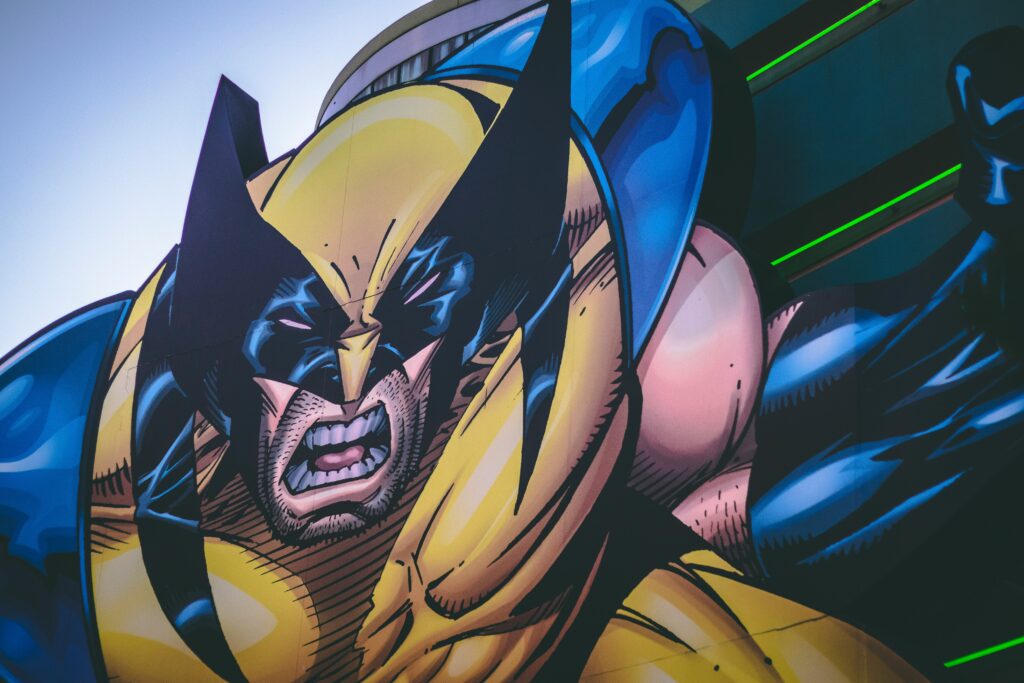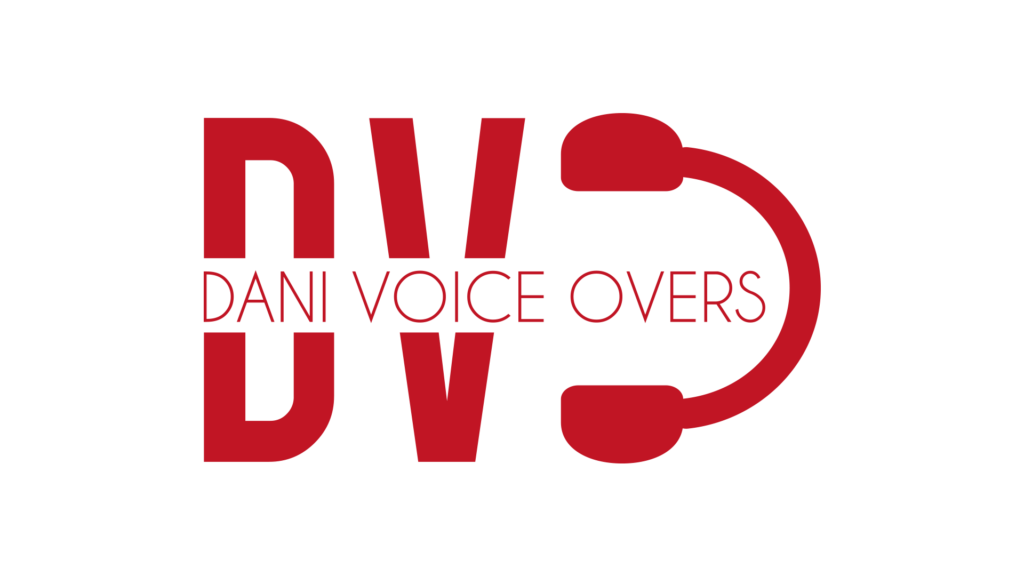
Interview with Gaby Jiménez, the Spanish voice of Wolverine. We can’t stress enough that taking care of our voice is key to count on it for a long time. Voice talents and voice actors must be very careful not to lose it because it is their work tool, and after having received the magnificent advice of Marta Pinillos, a speech therapist with an immense trajectory, today we talk with someone who dedicates 8 hours a day (at least) to voiceover and dubbing.
At Dani Voice Overs, we’ve chatted with an absolute titan, whose career achievements have rarely been equaled, and whose friendliness, frankness and humility, make talking with him a privilege. He’s Gaby Jiménez, regular voice of Hugh Jackman (yes, the mythical Wolverine), Dominic Purcell (Prison Break) and Sam Winston (the father of American Dad).
A lifetime of voice work
Gaby Jiménez has opened up to DVO, starting with his beginnings: “My roots are in stage theatre, where I’ve worked since I was 9 years old. I started there, then I did some TV, then movies and I sang in a music band. In fact, it was the first children band that ever existed in this country, ‘La Pandilla’; then I went to the military and, upon my return, I had to start all over again for a while. But dubbing came up through my friend Miguel Ángel Varela, whom I have always affectionately nicknamed my ‘Godfather’ because he is the one who sponsored me in this profession, and he told me ‘You’re an actor, why don’t you try to work in dubbing? You’re already an actor, it’s a matter of synchrony, mastering it and working on it’. So that’s what I did, I started letting myself be seen at different studios… I’m talking about 43 years ago, and fortunately, after many hours of watching others at work and being in the theater and doing small tests, they gave me the opportunity to start working on this and here I am now”.
Gaby perfectly remembers her first role: “It was in a movie called ‘Mamma Roma’, with Anna Magnani, and we dubbed it at Cineson Studios, the director was Mari Pe Castro, and she was the one who gave me the opportunity to do my first takes. It’s been a long time”.
The myth: is having a good voice enough to be a dubbing actor?
A famous saying in the dubbing world is “I have a good voice/I have been told that I have a good voice, I can be a dubbing actor or announcer“, true or false? Gaby is clear: “No. I believe that the basis for a good voice actor, and this is why we call ourselves voice actors, is the acting. Not every character has a wonderful voice, far from it, some require certain idiosyncrasies or imperfections and don’t need a great voice. If you have it, you can put it to good use by doing certain types of characters, but it’s not essential nor absolutely necessary to have a great, thick and deep voice. I always remember Daniel Dicenta, a wonderful professional, and son of Don Manuel Dicenta, a lifelong theater and television actor, because he didn’t have a wonderful or precious voice, however he was a great actor actor and he did terrific performances ”.
If you want to dub movies or do voiceovers, Jiménez has some useful advice to get going: “I think you should go to a school and be trained by a professional. Learning from home is complicated, first of all due to technical issues, although today there are many formulas and cabins and thousands of things… such things have passed me by and I have become outdated, but I always consider that it has to be with the guidance of a mentoring figure who knows and teaches you”.
First of all: taking care of your throat
OK! We’ve reached it! We’re dubbing actors and have an intense day ahead of us! How should we prepare our throats? “My father was an opera singer, then he did dubbing, he was even my student, at the first school in APADEMA, and he taught me many years ago vocal placement, because we normally talk from the throat, and with that our voice sounds quite flat, we don’t breathe well or project the air well, we can pluck the strings excessively and in a bad way and thus damage them. First is how you place your voice and learning to breathe well and control your diaphragm, so that your voice comes out more fluently and hurt your throat as little as possible”. He also adds that he goes “by car in the morning to work and I warm up and do exercises or even sing, to avoid sleepiness when I’m in front of the mic at the studio, without my throat a little bit warmed up.”
Hugh Jackman: that’s how it is dubbing Wolverine
Delving into specific roles and actors, if there’s one that Gaby dubs more frequently than any other, it’s Hugh Jackman. Gaby Jiménez says that the most thankful thing when it comes to dubbing him is that “he’s a wonderful actor… after so many years I‘ve got his way of working, although it’s true that each character is different, Wolverine is not the same as ‘The Son’, who is the father of a kid with problems, it has nothing to do with it, but each professional’s acting is based on some ‘tics’, so you get to know their cadence when speaking, their movements and gestures, and that does help you follow them a bit better, but each character is different and this guy is tremendous, and from ‘The Greatest Showman’ to ‘Les Miserables’ to Wolverine… they have nothing to do with each other. I love dubbing him, but make no mistake: it’s not easy, really. Dubbing a great performer is never easy because his/her particular mastery when it comes to acting makes things difficult for you, but it’s more pleasant, and it helps a lot if he says one thing and makes a face accordingly, there are actors who say things with a blank expression, there’s no human way to get a sentence that makes sense out of a face that doesn’t make sense. Be it because of the affection that I have for Hugh Jackman or for so many years dubbing him, I love it, I have a great time and I know him very well, I have learned to follow him in an immense variety of characters”.
In ‘Prisoners’, Jackman screamed very loudly in the original version and Gaby perfectly matched it, with the consequent problem: “I had to split that recording into two days longer than what was projected because I’m an actor with a lot of heart, I have my vocal techniques like everyone but the heart sometimes commands, and the heart, when you’re seeing how he’s in that sequence… you can’t resist, there’s no way, and you go up, you go up… I released my voice in full gear with such bad luck that I rasped my throat on one occasion and had to stop recording until the next day, and then in another later sequence I rasped again because he got even louder, I tried to go with him, I did, and again I went to hell”.
The original actors have their time to prepare and recover, but voice actors don’t have those times and they also have to recover, how did he do it? “In that case, I came home without speaking to anyone, communicating just with signals, and drank hot things with honey, which helps.”
Chest or diaphragm breathing?
When doing a voiceover or dubbing, is it better to direct your breathing to your chest or your lungs? The dubbing actor explains that the diaphragm “is the machine that administers the air that goes through the entire respiratory system; if you breathe only through your mouth you’re doing it bad because you have to speak, it has to be a continuous game of nose-mouth-diaphragm and that goes around, the diaphragm helps you and administers the air. If, for example, you have a six-line paragraph, you have to breathe calmly, or to catch a lot of air and administer it to be able to reach the end, or figure out a way to, in between, find a mini gap and get some air, but there are times when it’s practically impossible”.
The case of Mimir, the God of War character in the Nordic saga who is, literally, a head that speaks volumes, something huge, is interesting since they are long ramblings, but Jiménez assures that “this is less intense because videogame dubbing is different, I do my little tricks to be able to take breaks, in that sense it’s a little less difficult”.
Stan Smith: pushing up the limits all day’s work
Another of his most famous characters is Stan Smith, who “is quite tired,” he admits, “I can’t do two episodes of this guy’s show in a row, I get very tired because he uses a very high tone, he talks a lot and very fast, it’s exhausting. At home they already know that if I have Stan, I go to bed early that day because I also get up very early, but I tell them “I have American Dad tomorrow so I’m going to bed and I don’t want to know anything” because I have to be ready due to have good voice and reflexes, it is a very complicated doll to dub, but I enjoy it a lot because it is very funny and a scoundrel, I have a great time even though I end up exhausted, yes, happily exhausted”.
The Old Days
What was dubbing like when he started? “It was a world apart. When I started the work rhythm was slower, you started a film from its beginning and continued until the end, not like now, and all actors worked together at the studio. It was more pleasant for me, more social and entertaining, even more fun. Now it is, it annoys me to say, more factory-like, more ‘you have to do a job and you have to get it whatever it takes’, people go like they are crazy, it’s what I see as the most differential, the rush”.
However, he makes it clear that the quality of the work these days is still “wonderful, it just has a new different rhythm. It’s much more work, it’s madness, and those of us who are extremely lucky to work a lot sometimes we can’t cope, there are Saturdays when I’m extremely tired, but I’m always grateful to have a job”, he concludes.


